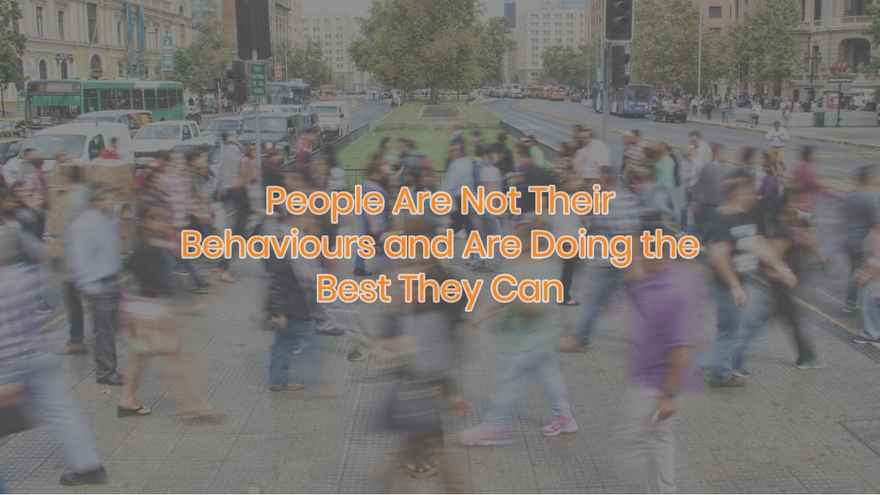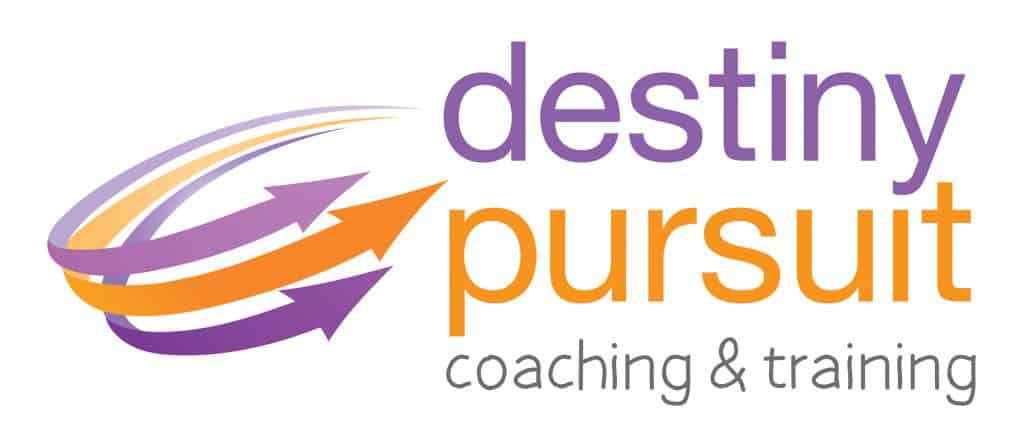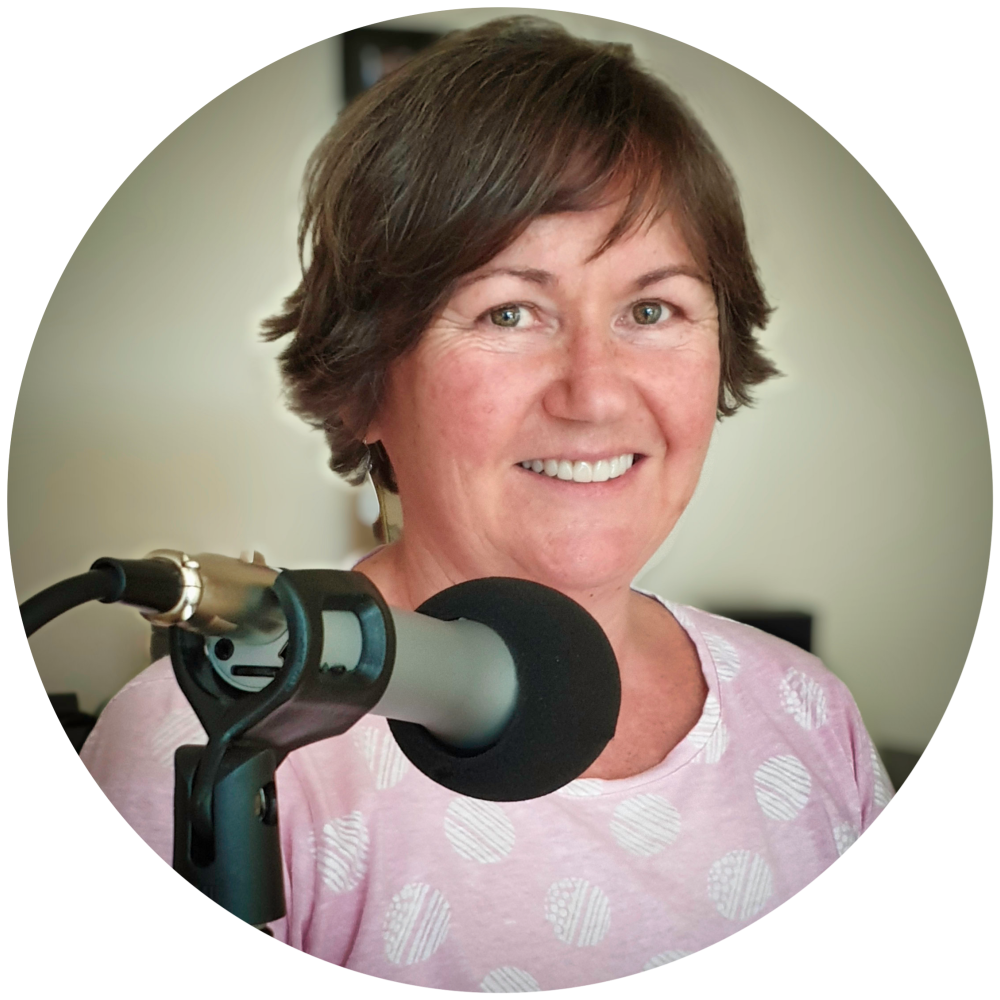People Are Not Their Behaviours and Are Doing the Best They Can - NLP Matters, Episode #033

Last week, we explored three NLP presuppositions that focus on acknowledging and accepting our personal power through redefining our responsibility as communicators.
This time, we’ll delve deeper into two more NLP Presuppositions that really challenge us to see the world from a different perspective - that people are not their behaviours, and that everyone is doing the best they can with the resources they have available.
In NLP, we describe this as taking up different perceptual positions. These different perceptual positions means more than just an intellectual acknowledgment that everyone has their own version of reality or “map” of the world, rather, we take the imaginative leap and wonder, “What if I had their map? How could I see their world?”
Listen to the podcast to learn more.
Listen to the Podcast
Here are some key takeaways from this episode:
People are not their behaviours.
- We are not defined by our behaviour. There is so much more to that.
- We can accept a person even when we may not accept some of their specific behaviour.
- We can choose how we behave. We can choose behaviours that are consistent with our identity, our beliefs and our beliefs, or not.
- Behaviours are actions. We can do them or we can stop them. Even if the choice is unconscious, it is still a choice, and because it is a choice there is always the possibility that we can change our choices, our decisions, and our behaviours.
- Behavior is something that occurs in a particular context. Perhaps there's a stimulus that produces a behavior or there's something going on for the person. Maybe it's a strategy they learned, and they just keep repeating the behavior because it's been an automatic habit now to respond or react in that way.
- As people, we are way more than our behaviours. When we recognise that we all have a capacity that exceeds just the behavior, and we see people holistically rather than just merely in reaction to a particular incident or a particular behavior, it gives us the capability to create new possibilities and potentially install new behaviour.
- No one deserves to be judged by the worst thing they've done. Similarly, we don't judge people exclusively by the best things they've done, because people are indeed much more than their behavior.
- Humans are magnificent beings. We are more than the sum of our parts. Our very existence could be a reason to celebrate with joy. Our very existence is a thing of wonder.
Everyone is doing the best they can with the resources they have available.
- A lot of human behaviour is needs-based behaviour. We do it in order to satisfy or meet a specific need, and we will continue behaviours that we have found are effective in meeting our needs.
- Recognising that we are doing the best we can with the resources we have available to us at certain a time opens up the potential for forgiveness or at least compassion and understanding.
- With the resources we have available to us, we can have different opportunities and can make new choices. Similarly, we have the capacity to model that for others. We can create for them the opportunity to also get in touch with the realization that at any point in our life, the decisions we make, the actions we take, the behavior we’re exhibiting are all based on the resources that we have available to us.
- We cannot recognise that everyone is doing the best they can with what they have got without also appreciating that every person has their own unique map or model of reality.
When we take on these presupppsitions it enables us to create a safe place for both ourselves and others to explore and create new possibilities.
The difference between defining ourselves and others purely in terms of our behaviour and recognising that people are so much more than just behaviour is a profound one. And, whilst we know that behaviour is a very accurate indicator of a person’s underlying beliefs, values and other unconscious drivers, it does not mean that this defines their identity or their potential as a person.
When we couple these presuppositions with the knowledge that people are doing the best they can with the resources they have available, then, it's a relatively small step to move on to respecting their model of the world.
When we bring that understanding to ourselves and to others, recognising that we aren’t just what we do and we are doing the best we can with what we’ve got, then, we also invite compassion and forgiveness into our world. We can possibly then get in touch with our own and other’s humanity, and in doing that, we create a safe place to explore and build new possibilities with the potential for change.
In our next episode, we’ll explore two more of the NLP Presuppositions – that the Meaning of Communication is the Response You Get and The Law of Requisite Variety.
Listen to the Podcast
Joanne Clark
Joanne Clark is an Internationally accredited Master Trainer of NLP who has been delivering NLP training since 2011. Being on her feet in front of training rooms is where Jo loves to be and her passion for inclusive and immersive training that delivers outstanding learning outcomes is apparent to everyone in her training rooms. On average Jo delivers 140 days of training per year in addition to online webinars, guest speaker events and group coaching.
“NLP is at the core of all my training and coaching, it is at the core of who I am, how I interact and connect with people. I am absolutely passionate about spreading the NLP tools across the planet as I endeavour to support Robert Dilts’s vision of Creating a world to which people want to belong.” Joanne Clark
Certified Master Trainer of NLP; Master Practitioner NLP, Hypnotherapy & Matrix Therapies; Performance Coach; Cert IV Coaching; Advanced Practitioner in Coaching; Cert IV in Business; BA(Hons); Majors in Sociology and Psychology; Parent Education Leadership Training (PELT) Certificate; Mother of four children; Private Pilot (PPL); Diploma in Life Coaching


0 comments
Leave a comment
Please log in or register to post a comment